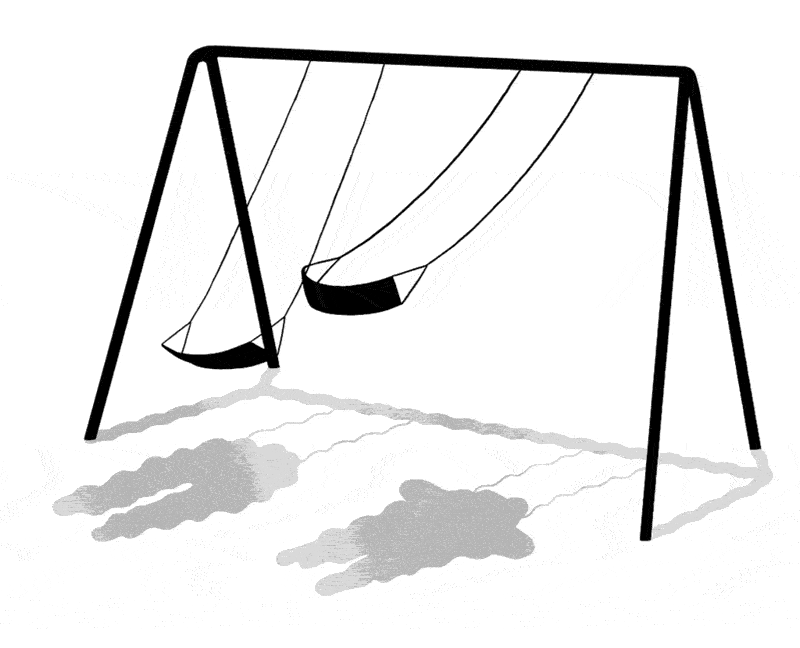
A ploice officer standing guard in front of Gulshan-e-Iqbal Park on Tuesday morning glared when I asked him to recount Sunday’s events. Ushering me into the park, he said to see for myself.
On Sunday, hundreds of people — mostly families with children — had gathered at Gulshan-e-Iqbal, one of the city’s largest parks, to enjoy the Easter day and the temperate weather. Griffin Iqbal, his wife, Samia, and their sons, 6-year-old Max and 4-year-old Adan, headed over after their church service. The boys spent their pocket money on popcorn and ice cream from a stall near the blue fountain and a ride called Hilly Gilly.
Around 6:15 p.m., Mr. Iqbal told the children it was time to leave. Adan dropped to the ground and kicked his legs in protest. His father scooped him up, took Max’s hand and walked to the gate. They had barely stepped out of the park when their ears rang with a deafening explosion and the ground shook.
Fearing a stampede, Mr. Iqbal told people running toward the park that the machinery of one of the rides must have malfunctioned. “But my words were drowned by screams that issued from the park,” he said.
A splinter group of the Pakistani Taliban called Jamaat-e-Ahrar claimed responsibility for the attack, which killed at least 72 people, including dozens of children, and injured hundreds. The group said the target of its suicide bomber was the Christian minority, celebrating Easter. But when the city’s hospitals counted the dead, they found that more Muslims than Christians had been killed.
That terrible night, thousands thronged the corridors of four city hospitals seeking to donate blood to the victims. Some taxi services announced free rides for those who wanted to give blood, and a blood bank in Karachi offered to ship its supplies without charge. Anthony Permal, a Pakistani Christian blogger and marketing professional based in Dubai, tweeted: “Every drop of blood donated will mix with the blood of the injured. Muslims and Christians will share their bodies tonight.”
As grieving families walked to the Christian cemetery, Gora Kabristan, on Monday, bystanders stood in reverential silence. The general sentiment was that this was not an attack on Christians alone, but on all the residents of Lahore.
In a show of solidarity, Pakistan’s prime minister, Nawaz Sharif, issued a ritual denunciation of terrorism in a nationally televised address. The army also began an offensive against the Taliban in the province of Punjab, of which Lahore is the capital.
Yet the psychological imprint of this attack will be etched deeply into the consciousness of the Christian minority, which makes up about 1.6 percent of the population. Over the years, Christians have been cowed into silence by their extremist persecutors — abetted by a government that has failed to protect them.
There is grief, yes, but where is the outrage? Aside from an official period of mourning, there will be no public display of grief, no collective act of commemoration by the city’s main churches. The Christian leadership’s statements of condemnation and consolation have come through government-approved channels like Pakistan’s Muslim Ulema Council. The Christians in Lahore are advised by the government to lie low and let the unwanted attention pass.
Rana Tanveer, a Lahore-based journalist who covers human rights, recalled his conversations with church leaders, most of whom generally refuse comment or won’t answer his calls. When they take you into their confidence, he told me, it is obvious that the community does not think it belongs here.
The only demonstration the churches have organized in recent years was to join the protests by Muslims against the American pastor Terry Jones, of Burn the Quran Day infamy. They did so in an effort to safeguard their community, Mr. Tanveer explained.
“Can we blame them? The entire system works to exclude them from every aspect of nationhood,” he said.
On Sunday, just hours before the bombing in Lahore, the streets of Islamabad, the capital, provided another frightening illustration of his point. An estimated 25,000 protesters gathered for the end of the period of mourning for Mumtaz Qadri, who was executed in February for the 2011 murder of Salman Taseer. Mr. Taseer was the governor of Punjab who had criticized Pakistan’s blasphemy law and spoke out against the conviction of a Christian woman named Asia Bibi for violating it. For this, Mr. Taseer was shot to death by his own bodyguard, Mr. Qadri.
Demanding, among other things, the execution of Ms. Bibi, the Qadri supporters left a trail of destruction as they stormed the “red zone,” a secure area supposed to protect government and embassy buildings. They burned a bus, ransacked a bus station, destroyed vehicles and surrounded the Parliament building before the army was called in. Such unimpeded violent expression of hatred shows how ineffective the government’s resolve to stamp out extremism has been.
Over the last decade, the government has promised many times to crack down on the extremists. But Sunday’s attack proves that safety, especially for minorities, is a luxury the state is failing to provide. The security at Gulshan-e-Iqbal Park was nearly nonexistent.
On Tuesday, the site of the attack was cordoned off, but the blackened metal barrier of the Hilly Gilly ride and the scorched tiles of the fountain explained it all. The policeman guarding the park told me it was the ball bearings in the attacker’s vest that did the most damage, ripping though victims’ bodies.
“I cried later at home,” he said, now glaring at the ground. “This is the death of humanity.”
Sarah Eleazar is a writer and editor for The Express Tribune.
